Costa Rica has thousands of plants and animals. But, its mosquitoes are not cute at all. They can spread diseases like zika virus, dengue fever, and chikungunya virus. Travelers have stayed in bed for days, thrown up for hours and have even been rushed to the hospital. For pregnant women, the risks to the fetus are even greater. The good news is, travelers can protect themselves from mosquito illnesses in costa rica following these 10 simple steps.
Mosquito Illnesses in Costa Rica
The bite of an infected Aedes species mosquito transmits zika virus, dengue fever, and chikungunya virus. But not all Aedes mosquitos are infected, there is no need to panic after every bite.
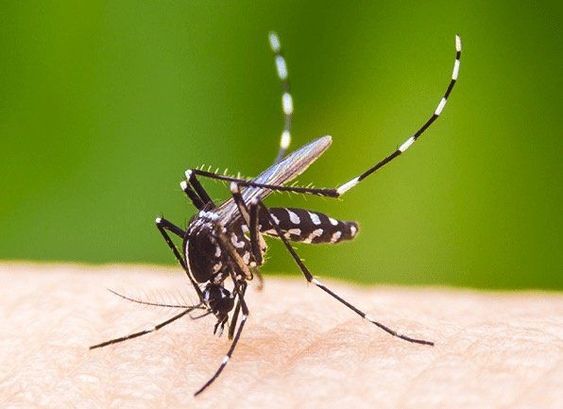
Zika Virus
Costa Rica sees the zika virus most commonly in the Caribbean side of the country. The country sees under 10 cases of zika per week. Undiagnosed cases may be higher.
Zika is a particular threat to pregnant women. If the mom passes zika onto the fetus, it can cause a birth defect called microcephaly and other severe fetal brain defects according to the U.S. Center for Disease Control (CDC). If pregnant, I highly advise reviewing this CDC travel sheet and talking with your doctor before traveling to Costa Rica, especially the Caribbean side of the country.
Aside from pregnancy, many infected with Zika either don’t show symptoms or have mild symptoms. If someone does feel sick, it usually passes within a week or so. Rarely do people need to be hospitalized.
You get zika either by being bitten by an infected mosquito directly or engaging in sexual intercourse with someone who is infected.
Dengue Fever
There are roughly 2,700 weekly cases of Dengue in Costa Rica. Though the majority of these cases are on the Caribbean coast, about a third are found on the more touristy Pacific coast.
Dengue is more impactful. The majority of people who are infected have a mild case that they describe as flu-like symptoms. While not as bad as severe dengue (described below), it can take as much as a week to recover. This can spoil your vacation. Keep in mind that only one in four who contract dengue show symptoms.
Severe dengue is a medial emergency. This means the disease is, “life-threatening and requires care at a hospital,” according to the CDC. Those with severe dengue should seek medical assistance immediately. Once again, pregnant woman and infants are at greatest risk of severe dengue. If you’ve had dengue before, you’re also at greater risk of severe dengue. About one in 20 will develop severe dengue.
Warning signs for severe dengue include —
- Nose or gum bleeding
- Stomachache and tenderness
- Feeling tired, restless, or cranky
- Vomiting blood or blood in stool
- Vomiting three or more times in a day
Chikungunya Virus
Chikungunya is a rarer disease in Costa Rica, with around 25 diagnosed cases per week.
Unlike the other two, the majority of people that contract chikungunya will develop symptoms. The joint pain associated with chikungunya can disrupt daily life. It also lasts long after the virus has run its course, making it a particularly nasty one to contract.
Though rare, it has been transmitted from mother to fetus which can be potentially damaging for the fetus.
Symptoms of Mosquito Illnesses in Costa Rica
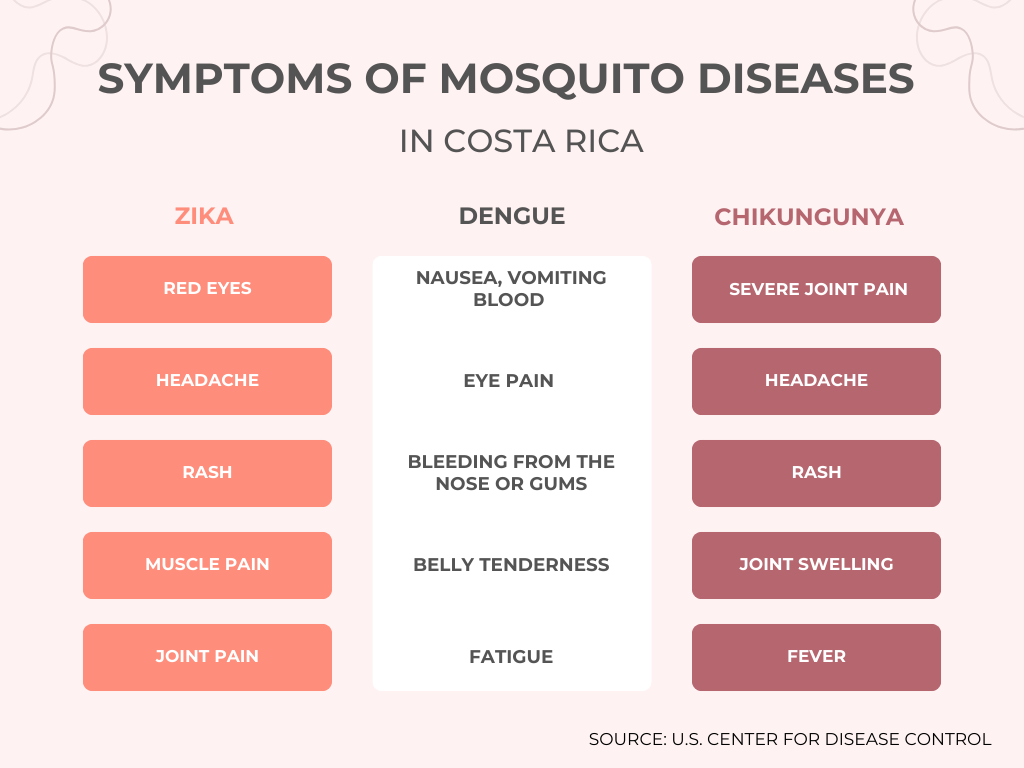
10 Ways To Prevent Mosquito Diseases in Costa Rica
A disclaimer: These suggestions are drawn from my personal experience avoiding mosquito illnesses in Costa Rica. I am not an expert in disease prevention nor am I a medical professional. Advice does not constitute professional guidance. If you have doubts about traveling to Costa Rica, I highly recommend seeking advice from a qualified medical professional.
1. Know Regions Where You’re Most At Risk
Costa Rica’s Caribbean coast is primarily at risk for mosquito-born illnesses. Rural areas are most impacted. But, touristy places (such as Puerto Viejo) have also seen cases of zika, dengue, and chikungunya. Below is a map of Costa Rica’s dengue density in February 2023. Data for zika and chikungunya is not available. However, those diseases are likely in the same area, as the Aedes mosquito carries all three.
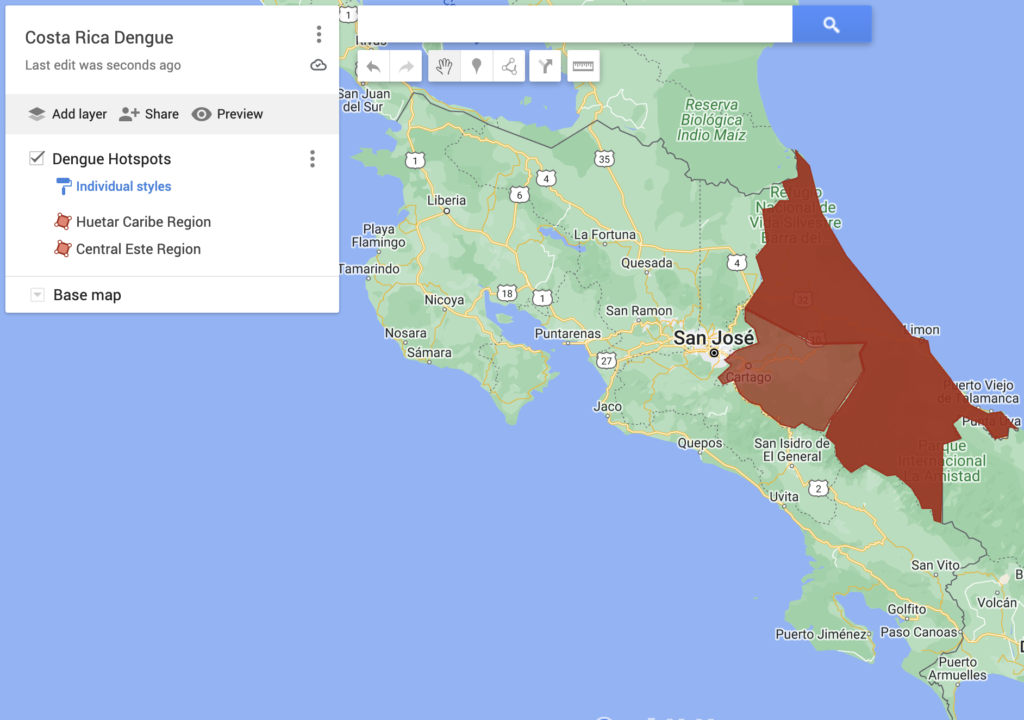
I followed the rest of the tips while spending a month in Puerto Viejo. They have kept me safe from any mosquito-born illnesses. They have also kept my bites to a minimum. Much more comfortable!
2. Use The Right Mosquito Repellent
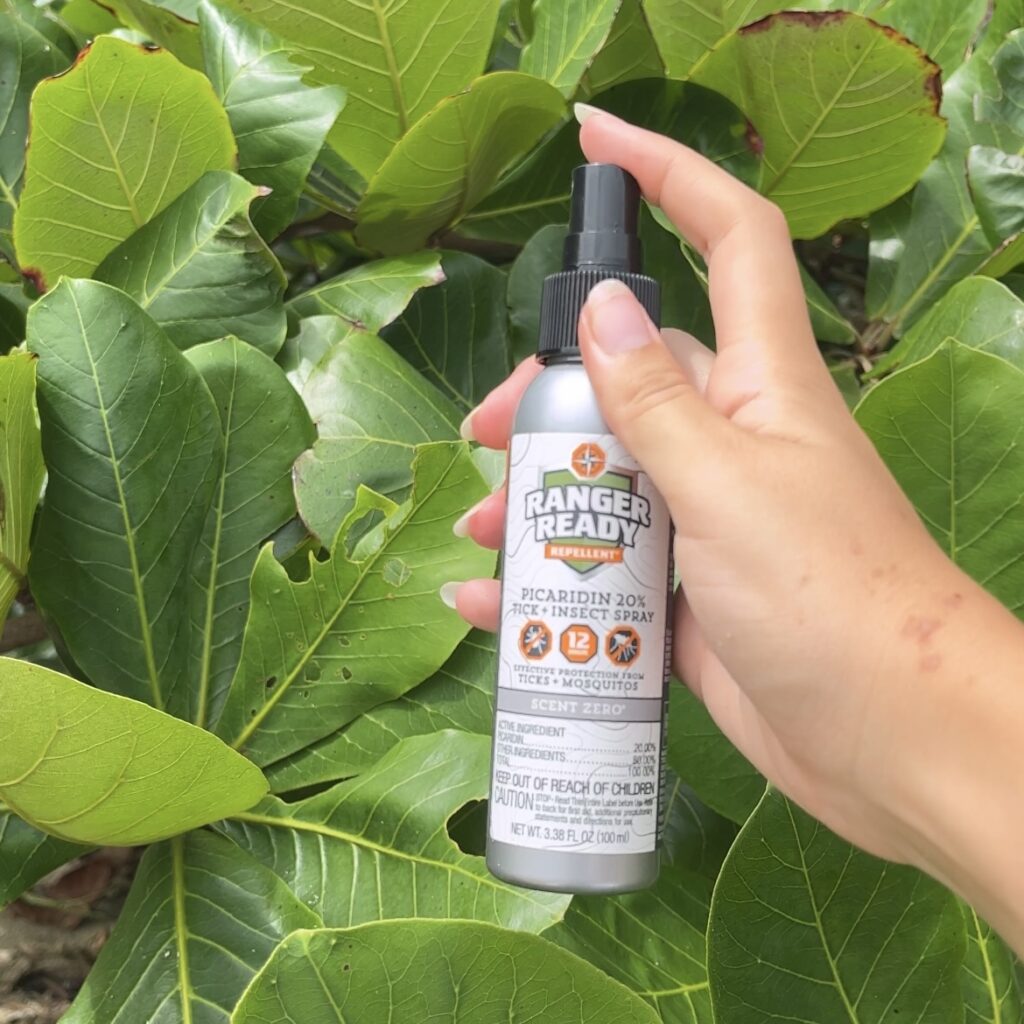
Costa Rica’s mosquitos are relentless. You’ll need some sort of repellent. Insect repellent is much more expensive in Costa Rica than in the United States, so I highly recommend purchasing travel-sized insect spray before you go. But repellent is very effective at preventing mosquito illnesses in Costa Rica.
DEET
DEET is incredibly effective. Mosquitos won’t touch you with a 10-foot pole. When I am hiking in shady places, I know this 98% DEET will keep me covered. However, I wouldn’t recommend it for everyday use. Keeping DEET on your skin for a prolonged period of time leads to irritation, redness, rash, and swelling.
Picaridin
This Ranger Ready Picaridin 20% was my saving grace! I wore it everyday in Costa Rica and was fully protected from mosquito bites. If wearing something tight-fitting, I recommend spraying the clothes. Mosquitos in Costa Rica can go through clothes to bite you. Got through customs with these two bottles in my carry-on. It is also safe to use during pregnancy! My only regret was that I did not bring more.
IR3535
Full disclosure, I have not used IR3535-based repellent in Costa Rica. It is reportedly longer-lasting than DEET or Picaridin. Studies have shown it to be effective in preventing zika virus, dengue fever, and chikungunya virus.
Lemon Eucalyptus Oil
A more natural option is oil of lemon eucalyptus-based repellent. Known as OLE, it is the only natural-based repellent recommended by the CDC. This is due to studies showing similar effectiveness as DEET. For those looking to go the natural way, I would highly recommend OLE. I borrowed a friend’s Murphy’s OLE bottle while hiking in Cahuita. I only got a few bites over the course of several hours, which is very impressive for a natural repellent.
3. Spray All The Places You Would’t Think Of
Costa Rica’s mosquitos are creative. They bite all the places you wouldn’t think to spray or cover.
Cover or spray these places —
- Back of the neck
- Scalp if hair in thin
- Everywhere on the face
- Top of feet including toes
- Top and bottom of fingers
Pro tip: When applying repellent to the face, rub it on instead of spraying it.
4. Know When Mosquitos Are Most Likely To Bite
Do mosquitos bite in the sun and shade?
According to the CDC, the aedes bites both in the sun and the shade. But in my experience, I have never seen an aedes in the heat of the sun in Costa Rica. They are more likely to be buzzing about in the shade. The difference can be quite stark. In the shade of a palm tree, you’re swarmed. Step two feet into the sun and you’ll not see a single one.
What time of day do mosquitos bite most?
Mosquitos are also most prominent around dawn and dusk. In the heat of the day, they are scarce. I highly recommend doubling down of repellent before dusk hits in Costa Rica. Remember the sun sets at 5 or 6 pm, be sure to take it with you if needed!
Are mosquitos around bodies of water?
Mosquitos are born into bodies of water. Thus, they tend to gather around rivers, lakes or streams. If you’re relaxing by a still body of water, double down on the repellent.
5. Wear Long Clothes
Loose long skirts and shirts with sleeves are ideal for warding off mosquitos. Having that extra bit of coverage goes a long way in preventing mosquitos from biting. This method also helps conserve bug spray, as you don’t have to use as much when you are covered. Personally, I wore a lot of Savannah Morrow’s loose-fitting long skirts while in Costa Rica.
Pro tip: Avoid tight fitting clothing. Mosquitos have bitten my legs to pieces while hiking in yoga pants.
6. Sleep Under Screens
Many stays in Costa Rica offer tipis, tents or even the option to sleep under the stars. Double check with the experience provider that you are sleeping under a mosquito net! This is especially true if pregnant, trying to get pregnant or at risk of mosquito-born illnesses.
Of course, the best option is sleeping between four walls that is insulated.
Some other tips —
- Bring a mosquito net.
- Sleep with the ceiling fan on.
- Sleep with air conditioning on.
- Don’t open windows without screens.
- Make sure you room opens onto an enclosed hallway.
If you’re going to spend time sleeping outside, I highly recommend bringing your own mosquito net. This Pop-Up Mosquito Net Tent is perfect for sleeping under the stars.
7. Prepare For The Worst
Is Tylenol good for dengue fever?
Acetaminophen is the only thing that keeps a fever down. If you catch dengue, you’ll want it on hand. I packed a whole tin just in case, which makes it so easy to keep fever low instead of running around to pharmacies while sick.
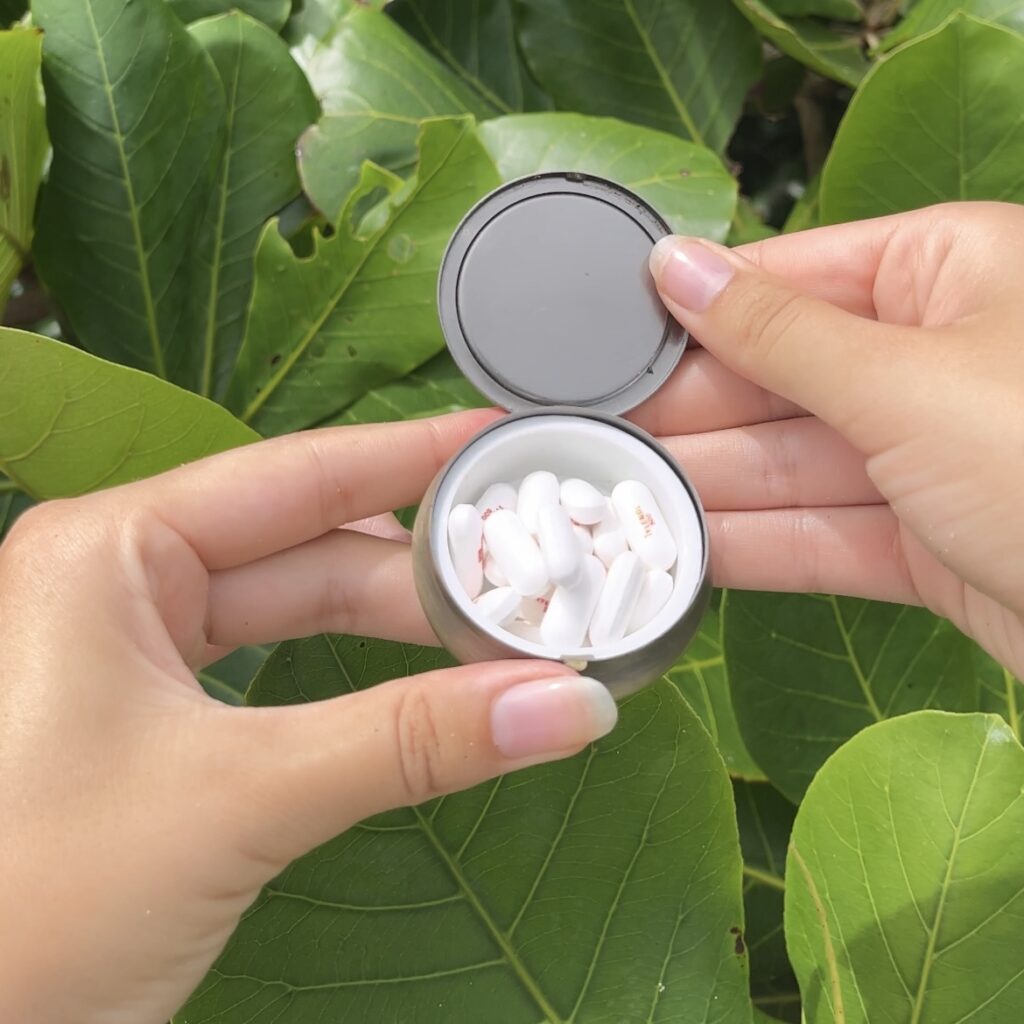
Some name-brand acetaminophens include —
- Tylenol
- NyQuil/DayQuil
- Paracetamol
- Panadol
Pro Tip: If you need to buy it while in Costa Rica, ask for “paracetamol.” Here, acetaminophen is more commonly referred to as the brand name: paracetamol.
Tylenol Extra Strength works wonders to reduce my fever. I always pack it in my carry-on so that I know I have it in case of an emergency. Oftentimes, fever comes on quickly and you don’t have time to run to a pharmacy.
Should I pack a thermometer?
Yes. Having a thermometer on-hand will allow you to easily monitor your temperature. In Costa Rica, this is crucial for any illnesses.
8. Mask Your Scent
Mosquitos can sense you from 30 feet away. Using both the carbon dioxide from your breath and skin oder, they have a unique ability to hone in on you.
Citronella candles and bug swatters have been debunked as myths. Studies show that they have a limited ability to deter mosquitos from one’s space. One study showed that citronella candles have the same effectiveness as unscented beeswax candles.
If you want a more effective way to repel mosquitos, there are two options:
A Fan
Yes! A simple fan is very effective at keeping mosquitos away. Aedes mosquitos are notoriously weak fliers. Strong winds easily blow them away. This includes fans! I spent many hours on an outdoor patio while in Costa Rica and was not bit. Why? A gigantic fan!
A Portable Repeller
The Thermacell MR450 Portable Mosquito Repeller is a great option for protecting a small space from mosquitos. It is very effective and small enough to be moved around easily!
9. Wrap It Up
Condoms are always important. But Zika can be transmitted through vaginal sex, anal sex, and likely oral sex, according to the CDC.
Women who are pregnant or trying should keep this in mind when considering their travel plans. Your partner could be infected with Zika and then transmit the disease to you via unprotected sexual intercourse.
This is where condoms come to play. If you are currently pregnant, the CDC recommends using condoms with sexual partners while in Costa Rica. If your sexual partner travels with you, the CDC recommends using condoms for the remainder of your pregnancy.
10. Avoid Fragrance
Mosquitos are drawn to fruity smells, as they feast on sugar in addition to blood. So leave the perfumes, scented shampoo and essential oils at home.
In one study, they tested mosquito behavior around four popular soap brands: Dial, Dove, Native, and Simple Truth. While three of the brand attracted mosquitos, just Native soap served as a repellent. The researchers hypothesized that it was because of the coconut scent, which is said to be a natural repellent.
Conclusion
Can you prevent mosquito-born illnesses in Costa Rica? Most definitely. If you are diligent about applying bug spray, know what areas of the country to avoid, and wear the proper clothing, you’ll be able to reduce the risk of being bitten. Pregnant women should take extra precautions if they do decide to travel to Costa Rica. But overall, travelers should not let the fear of being bit prevent them from experiencing the pura vida lifestyle.
Now that you’re feeling better about mosquitos, check out the solo travel safety guides for Costa Rica!







